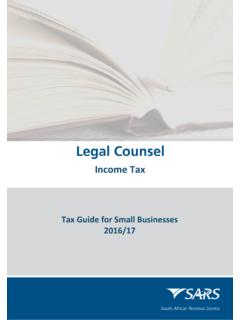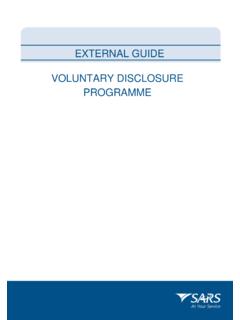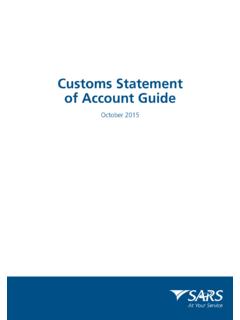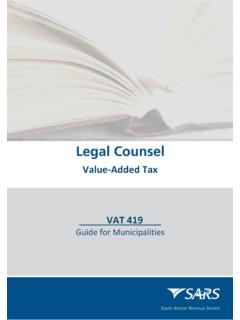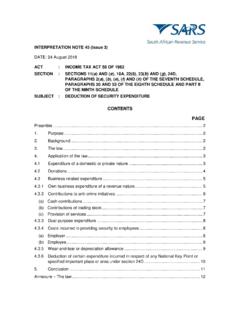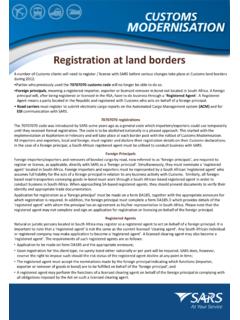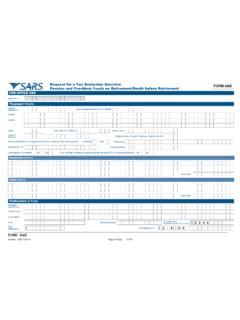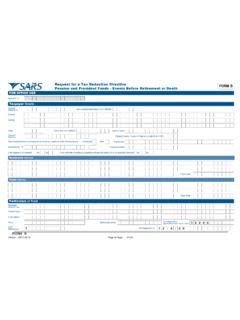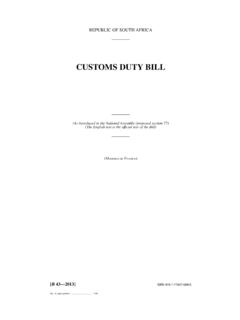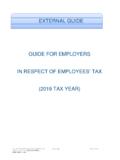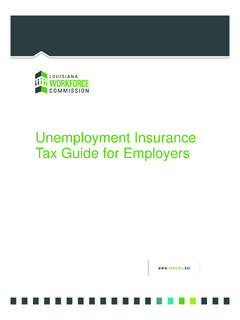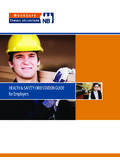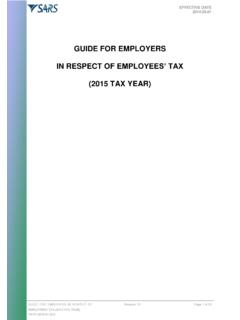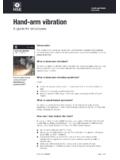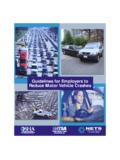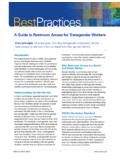Transcription of PAYE-GEN-01-G12 - Guide for Employers iro Employees Tax ...
1 Guide FOR Employers IN RESPECT OF Revision 0 Page 1 of 55 Employees TAX (2017 TAX YEAR) PAYE-GEN-01-G12 EXTERNAL Guide Guide FOR Employers IN RESPECT OF Employees TAX (2017 TAX YEAR) Guide FOR Employers IN RESPECT OF Revision 0 Page 2 of 55 Employees TAX (2017 TAX YEAR) PAYE-GEN-01-G12 TABLE OF CONTENTS QUICK REFERENCE CARD 4 1 PURPOSE 6 2 SCOPE 6 3 BACKGROUND 6 4 REGISTRATION 7 5 REGISTRATION AS AN EMPLOYER 7 BRANCHES REGISTERED SEPARATELY 8 CHANGES OF REGISTERED PARTICULARS 8 DEREGISTRATION OF AN EMPLOYER 9 RECORD KEEPING 9 6 EMPLOYER RECORDS 9 RECORDS AND INFORMATION TO BE PROVIDED BY THE employee 9 DETERMINING THE Employees TAX, SDL AND UIF LIABILITY 10 7 ELEMENTS REQUIRED BEFORE Employees TAX MAY BE DEDUCTED 10 ANNUAL EQUIVALENT CALCULATION 10 DEDUCTION TO DETERMINE THE BALANCE OF REMUNERATION 11 RETIREMENT FUND CONTRIBUTIONS 11 DONATIONS 12 MEDICAL SCHEME FEES TAX CREDIT 12 Employees TAX DEDUCTION 13 SDL LIABLE AMOUNT 13 UIF LIABLE AMOUNT 14 ESTIMATED ASSESSMENT 15 8 PAYMENTS 15 9 PAYMENT OF Employees TAX.
2 SDL AND UIF 15 INTEREST AND PENALTY 16 OFFENCES 17 10 TAX DIRECTIVES - LUMP SUM BENEFITS AND EXCEPTIONAL CIRCUMSTANCES 17 11 PURPOSE OF A TAX DIRECTIVE 17 HARDSHIP DUE TO ILLNESS OR OTHER CIRCUMSTANCES 19 GAINS MADE IN RESPECT OF RIGHTS TO ACQUIRE MARKETABLE SECURITIES 19 12 BROAD-BASED employee SHARE PLAN 20 VESTING OF EQUITY INSTRUMENTS 20 ARBITRATION AWARDS 22 LUMP SUM BENEFIT PAYMENTS FROM A PENSION, PENSION PRESERVATION, PROVIDENT, PRESERVATION OR RETIREMENT ANNUITY FUND 22 LUMP SUMS BY Employers SEVERANCE BENEFITS 24 LUMP SUM COMPENSATION FOR OCCUPATIONAL DEATH 25 EMPLOYER-OWNED INSURANCE POLICIES 25 DIRECTORS OF PRIVATE COMPANIES/MEMBERS OF CLOSE CORPORATIONS 26 13 CLASSIFICATION OF Employees 28 14 LABOUR BROKER 28 INDEPENDENT CONTRACTOR 29 DIRECTORS OF PRIVATE COMPANIES/MEMBERS OF CLOSE CORPORATIONS 30 STANDARD EMPLOYMENT 33 SEASONAL WORKERS 34 Guide FOR Employers IN RESPECT OF Revision 0 Page 3 of 55 Employees TAX (2017 TAX YEAR) PAYE-GEN-01-G12 Employees BETWEEN 65 AND 74 YEARS 35 Employees 75 YEARS OR OLDER 35 COMMISSION AGENTS 35 CLASSIFICATION OF PAYMENTS 36 15 BACKDATED (ANTEDATED)
3 SALARIES AND PENSIONS 36 AMOUNTS RECEIVED BY LABOUR BROKER OR PERSONAL SERVICE PROVIDER 37 RESTRAINT OF TRADE PAYMENTS 37 LEAVE PAY 37 SPECIAL REMUNERATION PAID TO PROTO TEAMS 38 ADVANCE SALARY 39 OVERTIME PAYMENTS 39 ANNUAL PAYMENTS/BONUS 39 ALLOWANCES AND FRINGE BENEFITS 41 16 ALLOWANCES 41 FRINGE BENEFITS 42 EXEMPTIONS 42 17 UNIFORMS (SPECIAL UNIFORMS) 42 TRANSFER COSTS 42 SHARE SCHEMES 44 EXECUTIVE SHARE SCHEMES 44 BURSARIES AND SCHOLARSHIPS 45 EMPLOYMENT INCOME EXEMPTIONS 46 EMPLOYER-PROVIDED LONG-TERM INSURANCE (INCLUDING DEFERRED COMPENSATION SCHEMES) 47 REFERENCES 48 18 LEGISLATION 48 CROSS REFERENCES 48 DEFINITIONS AND ACRONYMS 49 19 Guide FOR Employers IN RESPECT OF Revision 0 Page 4 of 55 Employees TAX (2017 TAX YEAR) PAYE-GEN-01-G12 QUICK REFERENCE CARD 1 The deduction tables and instructions in this Guide came into effect on the 01 March 2016. Note: this is only a quick reference to this Guide .
4 In his Budget Speech on 24 February2016, the Minister of Finance proposed new tax rates, tax rebates, tax thresholds and other tax amendments for individuals. These changes came into effect on 1 March 2016. Details of these proposals are listed below and Employers must update their payroll systems accordingly. Tax Tables for Individuals and Trusts 2016/2017 Tax Year (1 March 2016 to 28 February 2017) TAXABLE INCOME (R) RATES OF TAX (R) 0 R188 000 18% of each R1 R188 001 R293 600 R33 840 + 26% of the amount above R188 000 R293 601 R406 400 R61 296 + 31% of the amount above R293 600 R406 401 R550 100 R96 264 + 36% of the amount above R406 400 R550 101 R701 300 R147 996 + 39% of the amount above R550 100 R701 301 and above R206 964 + 41% of the amount above R701 300 Tax rebates applicable to individuals 2017 Primary rebate R13 500 Secondary rebate (for persons 65 years and older) R7 407 Tertiary rebate (for persons 75 years and older) R2 466 Tax thresholds applicable to individuals 2017 Persons under 65 years R75 000 Persons 65 years and older R116 150 Persons 75 years and older R129 850 Medical scheme fees tax credit 2017 For the taxpayer R286 For the first dependent R286 For each additional dependent R192 Subsistence allowance (RSA only)
5 2017 Only incidental costs R115 Meals and incidental costs R372 Fringe benefit interest rate The official rate of interest is with effect from 1 February 2016. Residential accommodation Abatement R75 000 Rates applicable to taxpayers other than individuals Companies are taxed at a rate of 28% and trusts are taxed at a rate of 41%. The rate for trusts has increased from 40% to 41% with effect from 2016 tax year. Travelling allowance 80% of the travel allowance is subject to the deduction of Employees tax, meaning 80% of the travel allowance must be included in the employee s remuneration when calculating Employees tax. Provided that where the employer is satisfied that at least 80% of the use of the motor vehicle for a year of assessment will be for business purposes, then only 20% of the allowance will be subject to Employees tax. Travel allowance cost scale table for 2017 tax year (from 01 March 2016) 20142014 Febra Vehicle cost ceiling R 560,000 The simplified rate per kilometre Guide FOR Employers IN RESPECT OF Revision 0 Page 5 of 55 Employees TAX (2017 TAX YEAR) PAYE-GEN-01-G12 Exempt Bursary 2016 Remuneration ceiling ( previous year s remuneration proxy) R250 000 Basic education ( employee relative) R10 000 Higher education ( employee relative) R30 000 Fringe benefit: employer - owned provided motor vehicles With effect from 1 March 2011, the percentage rate for all Employers - owned provided vehicles is % per month of the vehicle s determined value.
6 However, vehicles with maintenance plans included within the purchase price at the time of purchase will trigger only a % monthly fringe benefit. With effect from 1 March 2014, where the vehicle is acquired by the employer under an operating lease concluded at arm s length and that are not connected persons in relation to each other, the value of a fringe benefit is the actual cost to the employer incurred under this lease plus the cost of fuel in respect of that vehicle. Retirement Fund Contributions The tax harmonization reforms for Pension fund, Provident fund and Retirement Annuity fund (retirement funds) will be implemented from 1 March 2016. All individuals who contribute towards a retirement fund after 1 March 2016 will qualify for a tax deduction up to 27,5 of the greater of remuneration or taxable income up to the maximum of R350,000 per tax year. Period for keeping records Records need not be retained by the person after a period of five years from the date of the submission of the return and after a period of five years from the end of the relevant tax period.
7 If the records are relevant to an audit or investigation or a person lodges an objection or appeal against the assessment or decision made, the person must retain the records relevant to the audit, objection or appeal until the audit is concluded or the assessment or the decision becomes final. FURTHER INFORMATION For more information visit the SARS website call the SARS Contact Centre on 0800 00 SARS (7277), or visit your nearest SARS branch. Guide FOR Employers IN RESPECT OF Revision 0 Page 6 of 55 Employees TAX (2017 TAX YEAR) PAYE-GEN-01-G12 PURPOSE 2 The purpose of this document is to assist Employers in understanding their obligations relating to Employees Tax, Skills Development Levy (SDL) and Unemployment Insurance Fund (UIF) contributions. SCOPE 3 This basic Guide is issued in terms of Paragraph 9(2) of the Fourth Schedule to the Income Tax Act No. 58 of 1962. This Guide prescribes the: Employees tax deduction tables as contemplated in Paragraph 9(1) of the Fourth Schedule to the Income Tax Act; Manner in which the tables must be applied by the employer.
8 BACKGROUND 4 What is Employees tax Where an employer pays or becomes liable to pay remuneration to an employee , the employer has an obligation to deduct or withhold Employees tax from the remuneration and pay the tax deducted or withheld to the South African Revenue Service (SARS) on a monthly basis. In most instances, the employer is obliged to issue each employee with an Employees tax certificate [IRP5/IT3 (a)] which reflects, amongst other details, the Employees tax deducted. Effective 1 March 2012 (2013 year of assessment) Standard Income Tax on Employees (SITE) will no longer be applicable as the tax threshold now exceeds the R60, 000, SITE limit. These subjects are fully dealt with later in this Guide . In addition thereto, the employer is obliged to submit an Employer Reconciliation Declaration (EMP501) to SARS In terms of Paragraph 3 of the Fourth Schedule, Employees tax receives preference over any other deduction from the employee s remuneration which the employer has a right or is obliged to deduct otherwise than in terms of any law.
9 Any reference to the start date and end date of a tax period is 1 March and 28/29 February. This Guide will include the start and end dates of an alternate period. An alternate period is normally determined at the option of the employer which may be exercised in relation to all Employees or any class of employee . Where an employer adopts the so-called alternate period, any remuneration paid to an employee during such alternate period is regarded as having been paid to him/her during the corresponding tax year. What is SDL This is a compulsory levy scheme for the purposes of funding education and training as envisaged in the Skills Development Act, 1998. This levy came into operation on 1 April 2000 and is payable by Employers on a monthly basis. What are UIF contributions This is a compulsory contribution to fund unemployment benefits. Since 1 April 2002, the contributions deducted and payable by Employers on a monthly basis have been collected by SARS and are paid over to the UIF which is managed by the UI Commissioner.
10 Liability of representative employer The representative employer is not relieved from any liability, responsibility or duty of the employer and is therefore subject to the same duties, responsibilities and liabilities as the employer References to the Act Paragraphs of the Fourth and Seventh Schedules and Sections referred to in this publication are governed by the Income Tax Act. References to the Skills Development Levies Act (the SDL Act), Unemployment Insurance Contributions Act (the UIC Act) and Tax Administrative Act (the TA Act) are specifically indicated Guide FOR Employers IN RESPECT OF Revision 0 Page 7 of 55 Employees TAX (2017 TAX YEAR) PAYE-GEN-01-G12 REGISTRATION 5 REGISTRATION AS AN EMPLOYER References to the Act Chapter 3 of the TA Act Paragraph 15(1) of the Fourth Schedule Section 4 and 5 of the SDL Act Section 4 and 10 of the UIC Act Meaning Application form Employers exempt from paying the SDL levy Registration with the UI Commissioner for UIF purposes An employer must apply for registration for Employees tax purposes with SARS within 21 business days after he/she becomes an employer unless none of the Employees are liable for normal tax.
